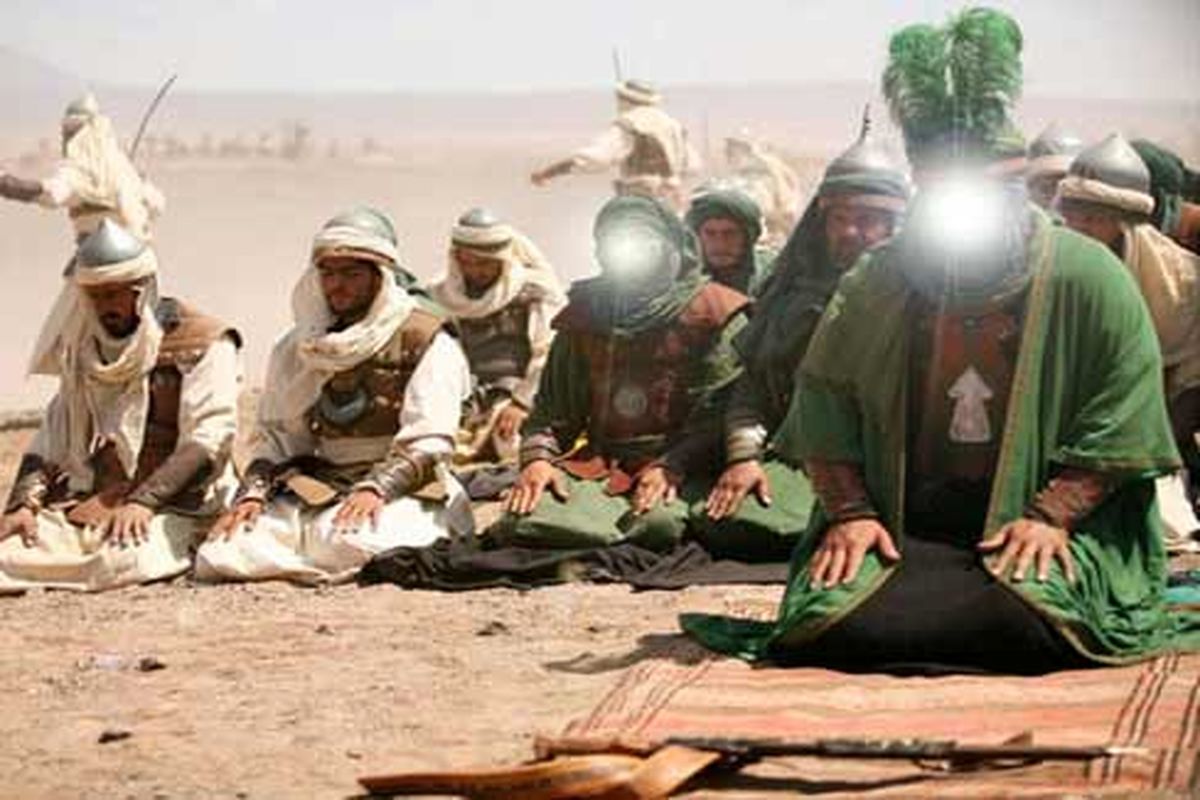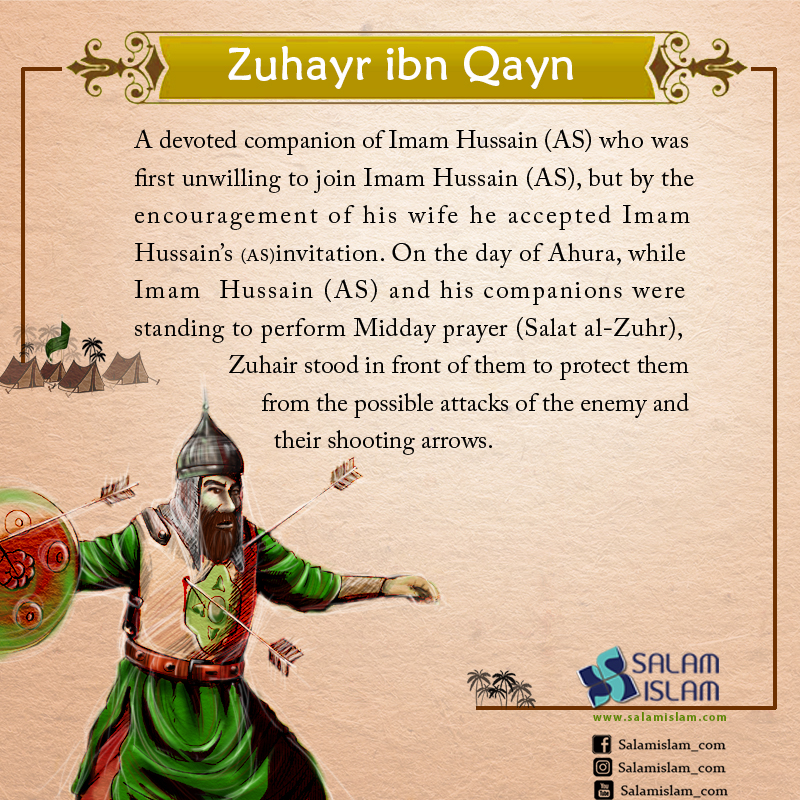

How does Islam define wisdom?
The Cambridge dictionary defines wisdom as using knowledge and experience to make good decisions and judgments. (1) The most similar equivalent for this word in Arabic is the word “حکمة” (“Hikmah”) which denotes justice, knowledge and tolerance. (2)
This word has been used so many times in the holy Quran and has a special meaning in Islamic literature. The holy Quran says:
Allah grants wisdom to whomever He wishes, and he, who is given wisdom, is certainly given an abundant good, and none takes admonition except those who possess intellect. (2:269)
About this verse of the Quran, Imam Sadiq (AS) says:
(In this verse) Allah The Almighty has portrayed the intellectuals in the best way. (3)
Hikmah is the message of the Prophets
Allah The Almighty has rapidly pointed out this fact that He has sent the prophets with “Hikmah” and they should teach people how to be wise. The holy Quran says:
Allah certainly favored the faithful when He raised up among them an apostle from among themselves to recite to them His signs (the verses of Quran) and to purify them and teach them the Book and wisdom, and earlier they had indeed been in manifest error. (3:164)
And:
There have already come to them, reports (via the Prophets) containing admonishment, [and representing] far-reaching wisdom; but warnings are of no avail! (4:54)
Also:
Invite to the way of your Lord with wisdom and good advice and dispute with them in a manner which is the best manner.. (16:125)
And:
When Jesus brought those manifest proofs, he said, ‘I have certainly brought you wisdom, and [I have come] to make clear to you some of the things that you differ about, so be wary of Allah and obey me. (43:63)
Allah almighty even says that the holy Quran is a book full of wisdom:
These are among [precepts] that your Lord has revealed to you of wisdom. (17:39)
These are the signs of the wise Book (31:2)

What is wisdom in the eyes of Allah?
The original meaning of the word “Hikmah” is wisdom, knowledge and tolerance and the ability to use your knowledge in the best way; but Allah The Almighty prefers some special kinds of wisdom. The verses of the Quran and the hadiths, try to clarify the true meaning of wisdom from Islamic sight.
Obedience towards Allah
• Abu-Basir, one of the brilliant pupils of Imam Sadiq (AS) once asked him about the verse; “He grants wisdom to whomever He wishes (2:269)”. Imam Sadiq (AS) replied, “That (Wisdom) is obeying Allah and knowledge about Islam” (4)
• Imam Baqir (AS) also says that “Hikmah” means: “not to commit the sins that Allah has ordained for it the Hell as a punishment” (5)
• Once Prophet Muhammad (PBUH & HP) asked a group of people who they are.
They said that they are some faithful people.
The Prophet (PBUH & HP) asked: “What are the signs of your faith?”
They said: “We are content about what Allah has planned for us and we are submissive to the order of our God and we trust in him for everything.”
The Prophet said: “You are so knowledgeable and wise the way that your wisdom can almost make you like prophets.” (6)
Knowing our Imams
Imam Sadiq (AS) about the verse “…and he, who is given wisdom, is certainly given an abundant good (2:269)” said ,“The abundant good is knowing Imam Ali (AS) and the other Imams (AS)” (7)
He also said: “(The “Hikmah” mentioned in the verse is) obeying Allah and knowing the Imam (of your time)”
In Arabic, the word “جهل” (Jahl) means “Ignorance”, which can be considered the opposite of “Hikmah”. So anyone who is not “Hakim” (wise) is “Ignorant” in Islamic culture. There is a hadith narrated from the Prophet (PBUH & HP) in which he said:
Anyone who dies while they don’t have an Imam will have died like a person in the ages of ignorance (8)
This hadith has been narrated by all Muslims’ Sunnis and Shiites and the authenticity of this record is undeniable.
About knowing the Imam, Imam Sadiq (AS) also said:
Anyone from among the followers of Prophet Muhammad (PBUH & HP) who understands the status and the rights of their Imam, will find how delightful having faith is.(9)
Understanding Religion
The last meaning of “Hikmah” mentioned in the Hadiths is “Fiqh” (jurisprudence) which means “Understanding”. In Islamic culture, this word is employed to define a deep understanding of religion and profound knowledge about it . (10)
Imam Sadiq (AS) said:
“Hikmah is the knowledge about religion and understanding it (Fiqh). Therefore, anyone who understands the teachings of the religion is a “Hakim” (a wise person). Indeed above all, Satan wishes the ones who deeply understand religion, to be dead.” (11)
The Holy Prophet (PBUH & HP) said:
Allah has given me the Quran and he also gave me Hikmah just like the Quran and every house which therein is no Hikmah is nothing but a ruined place. So learn Fiqh and get to know the religion so that you don’t die like ignorant people. (12)
To wrap up, in the Islamic view, “wisdom” means knowing how to live as a good servant of Allah and living the same way. As you see, all the meanings mentioned in the Quran and the Hadiths are about knowledge of religion and living the way religion indicates. Knowing your Imam (who is the leader Allah has chosen for you) is the best way to understand what you should do and how you should obey the orders of Allah. It is then obvious that all these different meanings and teachings employ a common concept which is obeying the order of Allah after having enough knowledge about it.
It is then obvious that all these different meanings and teachings employ a common concept; obeying the orders of Allah after gaining and enjoying competent knowledge about them.
Resources
- https://dictionary.cambridge.org/dictionary/english/wisdom
- Al-Ain, Khalil ibn Ahmad al-Farahidi, vol.3, pg.66
- Al-Kafi, Sheikh Koleini, vol.1, pg.13
- Tafsir noor ath-Thiqhlain, al-Huvaizi, vol.1, pg.287
- Tafsir, Al-Ayyashi, vol.1, pg.151
- At-Tohid, Sheikh Saduq, pg.371
- Tafsir noor ath-Thiqhlain, al-Huvaizi, vol.1, pg.287
- Musnad Ahmad ibn Hanbal, vol.28, pg.88
- Basa’ir ad-Darajat, Muhammad ibn Hassan as-Saffar, pg.412
- Sihah, al-Johari, vol.6, pg.2243
- Tafsir, al-Ayyashi, vol.1, pg.151
- Majma al-Bayan, Sheikh at-Tabarsi, vol.2, pg.194
Share This Article

What is the Philosophy behind the Arbaeen Walk?
Muslims commemorate the fortieth day after the martyrdom of Imam Hussain (AS) and his companions, called Arbaeen, meaning the fortieth day in Arabic. They all gather around the city of Karbala and Imam Hussain’s (AS) shrine, mourning and lamenting the unfair and cruel war between his comrades and those of Yazid Ibn Muawiyah, which led into the death of those pure men and the bondage of their families.
This commemoration happens every year around the city of Karbala. Muslims begin to walk to Karbala from other towns. They gather together in groups to pray, and especially to mourn the martyrdom of Imam Hussain (AS).
This walk is a hard one. It takes at least three days and lots of energy and time. So, why do Muslims take that? What is the philosophy behind it?
To answer our questions, first, let’s have a review of the history behind this walk and then move to the other aspects of this commemoration.
1. What is the Arbaeen Walk?
The history of Arbaeen walk goes back to the first visitors of Imam Hussain (AS) after his death. On the day of Arbaeen, forty days after the tragic martyrdom of Imam Hussain (AS), Imam’s (AS) son, sister and the remaining members of his family and that of the other martyrs came back to Karbala to lament the death of their dear ones besides their graves.
Their next visitor was Jabir Ibn Abdullah Ansari on the year 61 AH. Visiting Imam Hussain’s (AS) shrine was a tradition in Shiite culture until a short period after Morteza Anasari’s became the religious reference (Marja’) of Shiite Muslims. It was then lessened for some years and then revived. Some other religious references (Marja’) kept this tradition alive among their followers, until the government of Saddam Hussain, which banned all religious Shiite traditions to be performed publically [1].
The tradition was revived after the fall of Saddam, and it is still to be continued.
2. Why on Foot?
Visiting the holy shrines and going on pilgrimages on foot is not something new or belonging to our age. It’s got a long history, and Adam did the first pilgrimage on his visit to Mecca [2]. It isn’t a tradition just among Muslims either. It is performed in other faiths and religions, too. For instance, Caesar made a vow to his God to go on a pilgrimage to the Dome of Rocks if he won the battle against the Empire of Persepolis (Iran). He performed his vow after his victory [3].
Pilgrimages are highly admired, and their act is seen as a way of getting closer to Allah by Imam Sadiq (AS). Visiting the holy shrines of the twelve Imams (AS) is even more praised, especially the sacred shrine of Imam Hussain (AS). Of course, it’s not these shrines themselves that are of value and importance, but the people who have been buried there. Thus, when one makes a pilgrimage toward these shrines, he/she finds the chance to think more about these great personalities who won Allah’s satisfaction and praise and were Muslims in the real sense of the word. So, in every step that a pilgrimage takes toward Imams' (AS) shrines, especially that of Imam Hussain (AS), he/she is getting closer to a source of spiritual blessing, bringing him/her thousands of virtues and wiping away thousands of vices from his/her mind and soul.
3. What is the Philosophy behind the Arbaeen Walk?
The Arbaeen pilgrimage is not merely a long walk. Instead, it is a kind of movement in which despite being in publics, pilgrims have their own private relationship with Allah and Imam Hussain (AS), which finds a new form of divine immaterial dependence and conformance. Thinking about the goals and the history behind the martyrdom of Imam Hussain (AS), the injustice and cruelty imposed on his family and the devotions of his faithful followers brings about many personal and social growth and improvements.
Meeting other Muslims, exchanging ideas, and making friendships with Muslims of the other countries is another social outcome of this pilgrimage. One finds out that they are not alone in their faith, and have friends all over the world. They may have differences, but they have one thing in common: Belief in Imam Hussain (AS) and his right cause.
The last and the most crucial point to mention this great gathering is it's a kind of preparation for the grand reappearance of Imam Mahdi (AS), the awaited savior among Muslims. The Arbaeen pilgrimage is to make the minds and souls ready for this great event. It is said that when Imam Mahdi (AS) reappears, he introduces himself as the son of Hussain (AS) [6], whose fame has reached many people through the Arbaeen Pilgrimage; one of the most significant religious gathering around the world, with the estimated number of 40,000,000 people participating in it, whose news is broadcasted all over the world [5].
References
- "The background of Arba'een rally/The importance of Najaf-Karbala rally from the scholar's viewpoint." Fars News. Archived from the original on 16 November 2015. Retrieved 4 October 2015.
- Hor Ameli, Muhammad Bin Hussain Vasayel-o-Shia, Vol 11, p 132
- Sobhani, Jafar The Light of Eternity p. 696
- Kamel-o-Ziyarat: Pp 183, 184 and 185
- Philipson, Alice (19 January 2015). "The ten largest gatherings in human history." The Telegraph. Archived from the original on 6 October 2015. Retrieved 3 October 2015.
- Khademi Shirazi, Mohammad Yad’e Mahdi P16, P132
Read More

The characteristics of Imam Hussain 's (AS) companions
When discussing the companions of Imam Hussain (AS), the most significant aspect to consider is their actions and decisions in specific circumstances where they had to make choices. While reading history, it might seem ordinary to us that when faced with oppression and injustice, any rational human being would stand against it. However, before making decisions, people need to be sure if their resistance is worthwhile.
Throughout history, many people fought and died for what they believed to be the truth, only to find out they were supporting evil.
In this text, we will delve into some of the most astonishing characteristics of the companions of Imam Hussain (AS) that made them so special in history.
Obedience
The outcome of faith is guidance:
“Whoever has faith in Allah, He guides his heart.” (64: 11)
However, this guidance is achievable through obedience:
“O you who have faith! Obey Allah and obey the Apostle and those vested with authority among you.” (4: 59)
The most vital trait of the companions of Imam Hussain (AS) was their faith and reliance on Allah, and their obedience to Him, His messenger, and their leader - Imam Hussain (AS).
On the night of Ashura, Imam Hussain (AS) gathered his companions and said “I release you from the allegiance and oath you’ve taken from me. The darkness of the night surrounds you, so break free from the turmoil hidden in the darkness waves. Then each of you may hold of the hand of my family members and disperse into the villages and cities until Allah grants you relief .” The companions, one by one, replied “By Allah! We shall not abandon you. In fact, we are ready to sacrifice our lives for yours. We shall defend you with our necks, faces and hands. We will fulfill our duty even if it costs our lives.” [1]

Distinguishing right from wrong
The situation in the year 61 AH during the battle of Karbala was perplexing. People had to differentiate between the truth among two groups both claiming to fight for Islam. Imam Hussain (AS) left Medina as he knew Yazid, the son and the successor of the late caliph, disregarded Islamic principles. However, since Yazid and his ministers presented themselves with an Islamic facade, it was challenging for ordinary people to discern the correct side. Consequently, most Muslims were deceived by their hypocritical behavior, or they were threatened by Yazid’s ministers due to fears of losing material gains, causing them to join Yazid’s army.
It this context, Yazid managed to amass of over thirty thousand soldiers, while only few individuals - less than a hundred – chose to stand with Imam Hussain (AS). This fact highlights the great wisdom and bravery of Imam Hussain’s (AS) companions, and this wisdom, as the Quran mentioned, arises from steadfast faith:
“O you who have faith! If you are wary of Allah, He shall appoint a criterion for you, and absolve you of your misdeeds...” (8:29)
The Arabic term translated as “criterion” in the above verse is Furqan. Furqan is the power to distinguish right from wrong, a type of wisdom and insight bestowed by Allah upon His pious servants, which is not dependent on knowledge, literacy, or information. [1]
Based on this criterion granted by Almighty Allah, the companions of Imam Hussain (AS), coming from diverse ages and social, cultural and religious backgrounds, were all able to differentiate between right from wrong. It is regrettable that only a few comprehend this distinction!
“… But most of them do not know the truth, and so they are disregardful.” (21: 24)
Detachment from the world
Even among the faithful, some chose not to oppose Imam Hussain (AS) in the battle of Karbala. They remained silent and withheld their support for the Imam. The status of these believers differs from those who sacrificed their possessions and lives for the sake of Allah (SWT). Allah says in the
Quran:
“Not equal are those of the faithful who sit back—excepting those who suffer from some disability—and those who wage jihad in the way of Allah with their possession and their persons. Allah has graced those who wage jihad with their possessions and their persons by a degree over those who sit back…” (4: 95)
Loving Allah (SWT) and Being Loved by Allah (SWT)
Allah describes the relationship between Him and His pious servants as a mutual bond of love, with Allah (SWT) being the first to express love. In a beautiful Quranic verse Allah portrays His faithful, courageous, and humble servants as individuals loved by Him:
“O you who have faith! Should any of you desert his religion, Allah will soon bring a people whom He loves and who love Him, [who will be] humble towards the faithful, stern towards the faithless, waging jihad in the way of Allah, not fearing the blame of any blamer. That is Allah’s grace, which He grants to whomever He wishes, and Allah is all-bounteous, all-knowing.” (5: 54)
This verse underscores that these individuals may face criticism and blame from due to their decisions, but it will not make them turn away from their spiritual path.
Sacrifice
Another important characteristic of Imam Hussain’s (AS) companions was their selfless sacrifice in upholding the religion and tradition of the Prophet (PBUH&HP). It takes a noble soul to make sacrifices for others, and even more so when sacrificing one’s life to preserve the religion of Allah (SWT). This is why in the loving relationship that the companions of Imam had with their Lord, they presented their body and soul in defending the truth.
“And among the people is he who sells his soul seeking the pleasure of Allah, and Allah is most kind to [His] servants.” (2:207)
References:
- Qummi, A. Nafassul Mahmoum
- Qara’ati, M. Tafseer-e Nour, vol. 3, p. 305
Read More

